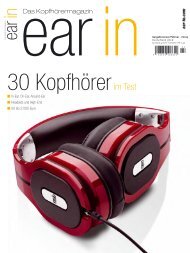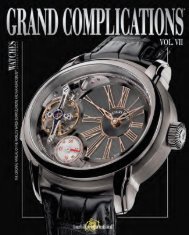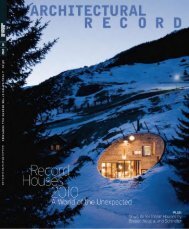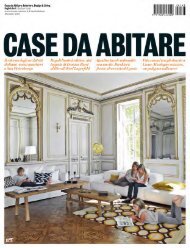THE ROUGH GUIDE to - Parallels Plesk Panel
THE ROUGH GUIDE to - Parallels Plesk Panel
THE ROUGH GUIDE to - Parallels Plesk Panel
You also want an ePaper? Increase the reach of your titles
YUMPU automatically turns print PDFs into web optimized ePapers that Google loves.
left-luggage office in the foreigners’ waiting<br />
room, signposted at the back of the<br />
station, with lockers for ¥20 (daily 5am–<br />
midnight). The left-luggage office at Xi Zhan<br />
is downstairs on the left as you enter (daily<br />
5am–midnight; ¥15/day). There are 24hr<br />
left-luggage offices at each terminal at<br />
Pudong; follow the signs. Price depends<br />
on size, but all but the biggest suitcase will<br />
cost a reasonable ¥20 per day.<br />
Libraries<br />
The Beijing National Library, 39 Baishiqiao<br />
Lu (Mon–Fri 8am–5pm; T010/68415566),<br />
just north of Zizhuyuan Park, is one of the<br />
largest in the world, with more than ten million<br />
volumes, including ancient manuscripts and<br />
a Qing-dynasty encyclopedia; the very oldest<br />
of its texts are Shang-dynasty inscriptions<br />
on bone. To take books out, you need <strong>to</strong><br />
be resident in the city, but you can turn up<br />
and get a day pass that lets you browse<br />
(apply in the office on the south side; ¥5). The<br />
Capital Library, 88 Dongsanhuan Nan Lu<br />
(T010/67358114) is smaller, but will let<br />
foreign visi<strong>to</strong>rs borrow books, though you<br />
have <strong>to</strong> pay a deposit of ¥250. They hold<br />
some foreign magazines and newspapers.<br />
The library of the British Embassy, on the<br />
fourth floor of the Landmark Building,<br />
8 Dongsanhuan Bei Lu (Mon–Fri 9am–5pm;<br />
Wwww.britishcouncil.org.cn), has a wide<br />
selection of books and magazines and is<br />
open <strong>to</strong> all.<br />
Living in Beijing<br />
Foreigners are allowed <strong>to</strong> reside anywhere in<br />
the city, though most live in expat housing,<br />
often in Chaoyang in the east of the city.<br />
Rent in these districts is expensive, usually<br />
at least £1000/US$1500/¥1000 a month,<br />
which gets you a rough imitation of a<br />
Western apartment. Living in ordinary<br />
neighbourhoods is much cheaper: a<br />
furnished two-bedroom apartment can cost<br />
around £250/US$300/¥2500 a month.<br />
The easiest way <strong>to</strong> find an apartment is<br />
through a real estate agent, who will usually<br />
take a month’s rent as a fee. There are plenty<br />
of agents, and many advertise in the expat<br />
magazines – an example is Wo Ai Wo Jia<br />
(44 Chengfu Lu; T010/62557602, Wwww<br />
.5i5j.com). Homestays can be cheap, but<br />
you won’t get much privacy; check Wwww<br />
.chinahomestay.org. For anywhere, as soon<br />
as you move in, you and the landlord should<br />
register with the local PSB office.<br />
Anyone intending <strong>to</strong> live in Beijing should<br />
get hold of the fat Insider’s Guide <strong>to</strong><br />
Beijing published by Middle Kingdom Press,<br />
which includes information on finding<br />
housing and doing business. It’s available in<br />
the Friendship S<strong>to</strong>re.<br />
Working in Beijing<br />
There are plenty of jobs available for<br />
foreigners in mainland China, with a whole<br />
section of expat society surviving as ac<strong>to</strong>rs,<br />
cocktail barmen, models and so on. Many<br />
foreign workers are employed as Englishlanguage<br />
teachers – most universities and<br />
many private colleges now have a few<br />
foreign teachers.<br />
There are schemes <strong>to</strong> place foreign<br />
teachers in Chinese educational institutions<br />
– contact your nearest Chinese embassy<br />
(see p.35) for details, or check the list of<br />
organizations given below. Teaching at a<br />
university, you’ll earn about ¥3000 a month,<br />
more than your Chinese counterparts do,<br />
though your workload of between ten and<br />
twenty hours a week is correspondingly a lot<br />
heavier. The pay isn’t enough <strong>to</strong> allow you <strong>to</strong><br />
put much aside, but is bolstered by<br />
on-campus accommodation. Contracts are<br />
generally for one year. Most teachers find<br />
their students keen, hard-working, curious<br />
and obedient, and report that it was the<br />
contact with them that made the experience<br />
worthwhile. That said, avoid talking about<br />
religion or politics in the classroom, as this<br />
could get you in<strong>to</strong> trouble.<br />
You’ll earn more – up <strong>to</strong> ¥150 per hour – in<br />
a private school, though be aware of the<br />
risk of being ripped off (you might be given<br />
more classes <strong>to</strong> teach than you’d signed up<br />
for, for example).<br />
Studying in Beijing<br />
There are plenty of opportunities <strong>to</strong> study<br />
in Beijing but note that most courses are in<br />
Chinese (for details of courses on the<br />
Chinese language itself, see below). Beijing<br />
Daxue (usually referred <strong>to</strong> as Beida, see<br />
p.97; Wwww.pku.edu.cn) and Tsinghua<br />
BASICS |<br />
Travel essentials<br />
39

















